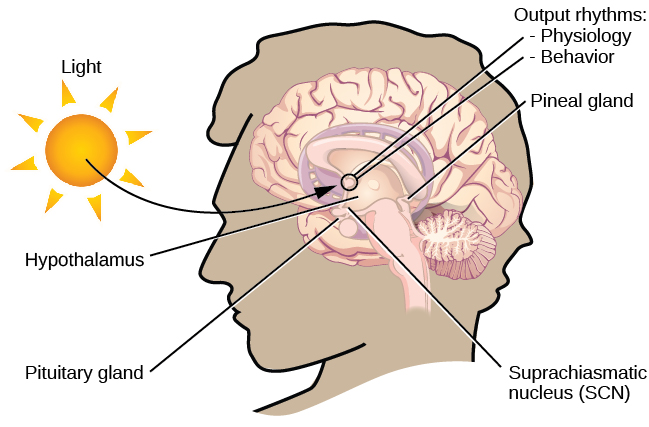Jul 27, 2020 | By Gillian Tietz, M.S.
How Does Alcohol Affect Sleep?
Alcoholism
One of the biggest misconceptions by drinkers and non-drinkers alike is that it doesn’t affect sleep. But how does alcohol affect sleep? About 20% of Americans use alcohol to help them fall asleep, and an estimated 10 million people consult doctors for sleep disorders. Alcohol does help us fall asleep faster, but it also prevents us from entering REM sleep, which is the restorative type of sleep. REM is also where we dream, and it is critical for normal brain function and emotional well-being.
Most of us know that alcohol helps us to fall asleep, but what happens after we drink to fall asleep is less commonly known. Alcohol impacts our sleep in a few key ways that result in us feeling tired and groggy the next day.
A Normal Sleep Cycle
Sleep involves two states: rapid eye movement (REM) and non-REM sleep, but non-REM has four stages.
We begin with light sleep, where we can be easily woken, and transition into intermediate sleep. Sleep progresses from light, to intermediate, to deep sleep. After deep sleep, we enter the first period of REM sleep, then REM and non-REM alternate in 90 minute cycles for the remainder of the night. Several areas of the brain are involved in sleep. Two key players are the hypothalamus and pineal gland. The suprachiasmatic nucleus (SCN) within the hypothalamus is clusters of thousands of cells that receive information about light exposure from the eyes. This helps us to match our circadian rhythm with the light-dark cycle.

How Does Alcohol Affect Sleep?
We Produce Less Melatonin
Drinking alcohol within an hour of bedtime can suppress melatonin production by 20%. Melatonin is what helps us feel sleepy, so if we produce less melatonin, we will have more difficulty staying asleep. Alcohol is proven to reduce sleep latency, meaning we fall asleep faster than if we weren’t drinking. What actually happens is we bypass light and intermediate sleep, going straight to deep sleep in the first half of the night
We Spend Less Time in REM Sleep
Alcohol disrupts our ability to enter REM sleep, especially in the first half of the night, which is the restorative sleep where we dream. As alcohol is metabolized, a rebound effect is observed and our ability to enter deep sleep is compromised. Deep sleep is critical for bone and blood health, and immune system function. Since we are less able to enter deep sleep in the second half of the night, we wake up a lot. The lighter we are sleeping, the easier it is to wake up. This is why many of us get that jolt around 2-3 am.
In a normal night of sleep, we have several cycle of REM sleep, but on a night of drinking we may only have one or two. This leads us to wake up feeling exhausted, even if we have been in bed for a while. 
We Sleep Less Overall
Several studies have shown that drinkers sleep less than non-drinkers, with almost no exceptions. On top of the disruption to our sleep cycles, alcohol is also a diuretic, making us wake up often to use the bathroom.Sobriety Improves Sleep
After getting sober, REM rebounds after 5-6 days. This means there are more periods of REM sleep and a shorter interval between REM and non-REM. Total sleep time can be improved with abstinence. One study followed and observed participants in week 19, month 14, and after 27 months of sobriety. They found that total sleep timed improved during the first year of recovery.
Relapse Dreams
Dreaming helps us process our emotions. If you are struggling with stress or anxiety, you will likely have more nightmares. While we can dream in all stages of sleep, dreams are the most vivid in REM sleep.
In early recovery, we have stress and anxiety from quitting alcohol, plus rebound REM sleep (remember, we have more vivid dreams during REM). Both of these contribute to the likelihood of nightmares about drinking. A relapse dream study done by Massachusetts General Hospital looked at a group of more than 2,000 people who had recovered from significant alcohol or drug use. Researchers found that about one-third of the participants had relapse dreams, which lessened the longer the person was in recovery.
Relapse dreams are dreams where the person drinks or ingests their drug of choice. When the dreamer wakes up, they experience disbelief and are overwhelmed with fear, guilt and shame. These dreams can feel so real that the person believes they may have relapsed for a moment.
The author of the study, John Kelly, explains:
“The association between the decreasing frequency of these dreams and the length of time in recovery suggests that, as the body and mind gradually adapt to abstinence and a new lifestyle, psychological angst about relapse diminishes. REM sleep and deep wave sleep undergo important changes, even long after people enter recovery, and these relapse dreams may be indicative of the healing process and brain-mind stabilization that occurs with time in recovery.”
Conclusion
So how does alcohol affect sleep? Although alcohol may help us to fall asleep faster, it disrupts our sleep for the entire night. We bypass light, intermediate and REM sleep, falling right into deep sleep during the first half of the night. As we metabolize alcohol, we enter REM rebound, making it incredibly difficult to go back to deep sleep. Alcohol also reduces the amount of melatonin our bodies produce, so on top of frequent bathroom visits, we feel less sleepy.Researches have seen sleep improve over the first year of sobriety, but with sobriety comes the potential to have dreams about drinking. These dreams can be very frightening and intense, but they begin to dissipate as we spend more time sober.
